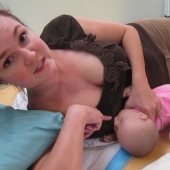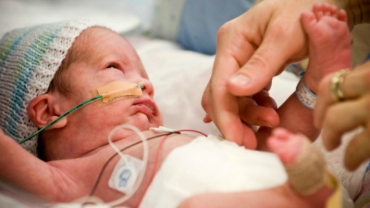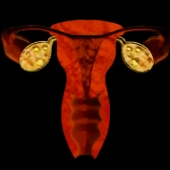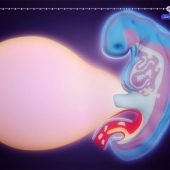During a radiation emergency, people may be exposed to large amounts of "high energy" radiation-much more than we get from everyday exposures like x-rays. Exposure to large amounts of high energy radiation, or "ionizing radiation," can cause harmful health effects in people.
A developing fetus is especially sensitive to radiation exposure, particularly in the early stages of pregnancy. In the rare event of a radiation emergency, pregnant women and their healthcare providers should work with radiation experts to address any health concerns about radiation exposure during pregnancy.
Let's take a closer look at the possible health effects radiation exposure can have on a developing fetus. It is especially important that pregnant women follow instructions from emergency officials and seek medical attention as soon as emergency officials say it is safe to do so after a radiation emergency.
A developing fetus is highly susceptible to health effects from radiation exposure because of the rapid rate of cell division. Prenatal radiation exposure occurs when the mother's abdomen is exposed to radiation from outside her body.
A pregnant woman who accidentally swallows or breathes in radioactive materials may absorb them into her bloodstream. From the mother's blood, radioactive materials may pass through the umbilical cord to the fetus or concentrate in areas of the mother's body near the womb such as the urinary bladder and expose the fetus to radiation.
The possibility of severe health effects depends on the gestational age of the fetus at the time of exposure and the amount of radiation it is exposed to. Fetuses are particularly sensitive to radiation during their early development, between weeks 2 and 18 of pregnancy.
The health effects to the fetus can be severe, even at radiation doses too low to make the mother sick. These can include stunted growth, deformities, abnormal brain function, or cancer that may develop sometime later in life.
Women have an increased risk of fetal miscarriage. Fetuses are less sensitive to radiation during later stages of pregnancy (after 18 weeks). Since the fetus is shielded by the mother's abdomen, it is partially protected in the womb from radioactive sources outside the mother's body.
This means that the radiation dose to the fetus is lower than the dose to the mother for most radiation exposure events. Remember, after a radiation emergency, pregnant women should follow instructions from emergency officials and seek medical attention as soon as emergency officials say it is safe to do so.
- 307 views













